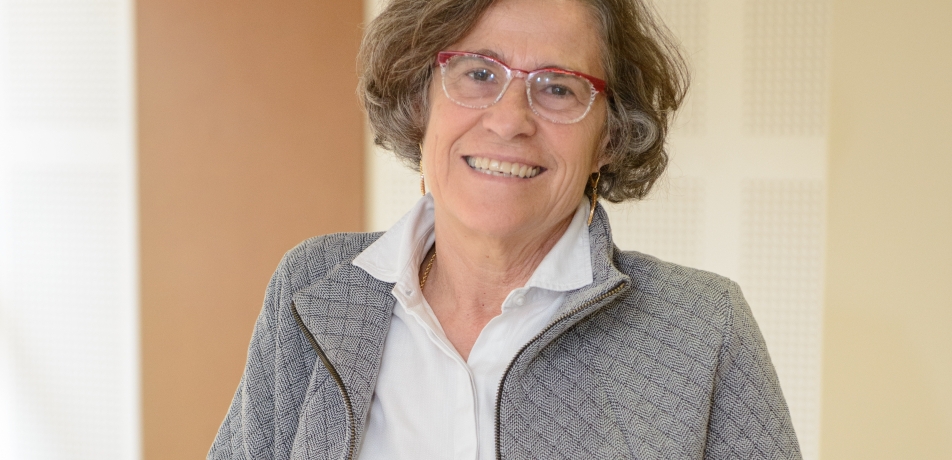Prof. Daniella Goldfarb
Breaking the postdoc bottleneck for women
Q&A

Prof. Goldfarb is the President’s Advisor for Advancing Women in Science and a member of the Department of Chemical Physics.
As the President’s Advisor, she heads the Israel National Postdoctoral Program for Advancing Women in Science, which annually selects 10 outstanding women PhD graduates from all Israeli universities and gives them an award of $40,000 over two years for postdoctoral research abroad, supplementing their postdoc salaries. The program has set the gold standard across Israel, advancing the careers of women in science, and more broadly, enriching Israeli science with women.
Q Why did the Weizmann Institute create this award?
A It was launched in 2007, when women represented only about 13% of our faculty. It was a dismally low percentage. But this was not unique to the Weizmann Institute; it is and continues to be representative of the status quo in life and exact sciences worldwide, and the numbers in the exact sciences are significantly lower than in the life sciences. In Israel, as elsewhere, about half of graduate students in the sciences are women. But few women trained in the sciences enter academia.
The common bottleneck is the crucial role of postdoctoral training in securing an academic position. We were “losing” nearly half of our brain power in the sciences. So the program set out to change the status quo: to encourage more women to take on careers in academia and change the landscape across all science faculties in Israel. We don’t require our recipients to return to faculty-track positions; the concept, I have to say, was highly altruistic and really tried to tackle the problem at the national level. However, the more outstanding women scientists we assist in taking on postdoc fellowships, the greater the chance that outstanding women scientists will join the Weizmann Institute faculty.
Q Why is the problem so pressing in Israel?
A In Israel, the challenge is magnified because postdoctoral research is usually conducted abroad: Israel is a small country with only seven major research universities, which means that its faculties cannot facilitate all possible new research directions and cannot offer the broad international research experience necessary for a scientific career. Given the vast competition for tenure-track positions in Israel, this means that an overseas postdoc at the most prestigious institutions is an unwritten prerequisite. Moreover, most Israeli PhD graduates are older than their peers abroad because of compulsory army service; therefore, women graduates often have husbands and children, and relocating a family abroad poses a major difficulty both financially and psychologically. Postdoc fellowship salaries are usually low, and meanwhile the institutions where many fellowships are conducted - Boston, New York, San Francisco, London - are some of the most expensive cities in the world.
Many Israeli women abandon their academic career aspirations at this stage. We felt we had to do something about it.
Q So, is it working?
A We are about to hit the decade milestone, and yes, we are witnessing major success. To date, we have awarded grants to 96 women. Of the 49 who have completed their postdocs - the rest are still in the midst of their fellowships - 38 have assumed academic positions: nine at the Weizmann Institute and the remainder at other Israeli universities and six abroad. Thanks to those new recruits, we have seen an improvement in our percentage of women on our faculty: It’s now 16.5%.
Another sign of success is the fact that many Israeli universities as well as the Israeli Council for Higher Education followed in our footsteps and initiated similar programs. We are thrilled about this. And this year, we launched a new grant for women who split their fellowships between Israel and a lab abroad, thereby assisting women who aren’t able to make the leap for the full overseas postdoc fellowship.
Q Where do the funds come from?
A The program is fully funded by our donors. It really resonates within our donor community, including the Clore Foundation and the Revson Foundation, but now so many others as well. We are very grateful for this support, and so are the recipients. Although there is much more work to be done, one thing is certain: The next generation of women will have a cadre of role models and a career to which they can aspire with a bit less trepidation.








